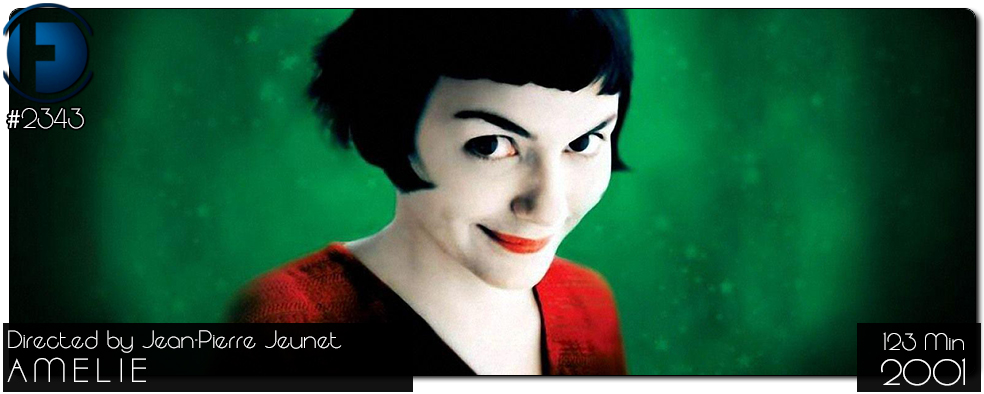Movie Review – Amelie
Principal Cast : Audrey Tautou, Mathieu Kassovitz, Rufus, Lorella Cravotta, Serge Merlin, Jamel Debbouze, Clotilde Mollet, Claire Maurier, Isabelle Nanry, Dominique Pinon, Artus de Penguern, Yolande Moreau, Urbain Cancelier, Maurice Benichou, Michel Robin, Andree Damant.
Synopsis: Despite being caught in her imaginative world, Amelie, a young waitress, decides to help people find happiness. Her quest to spread joy leads her on a journey where she finds true love.
********
Amelie is a delightful masterpiece that effortlessly captures the whimsy and charm of Parisian life through the eyes of its endearing protagonist. Directed by Jean-Pierre Jeunet, this film is a visual and emotional feast, blending surreal storytelling with a heartfelt exploration of human connections. Audrey Tautou shines in her role as the mischievous yet compassionate Amelie, whose quest to spread joy to those around her unfolds in a series of enchanting vignettes. Jeunet’s direction, coupled with Bruno Delbonnel’s stunning cinematography, paints Paris in a dreamlike palette that enhances every moment of this magical journey. Amelie is not just a film; it’s a whimsical escape into a world where even the smallest acts of kindness can spark profound changes.
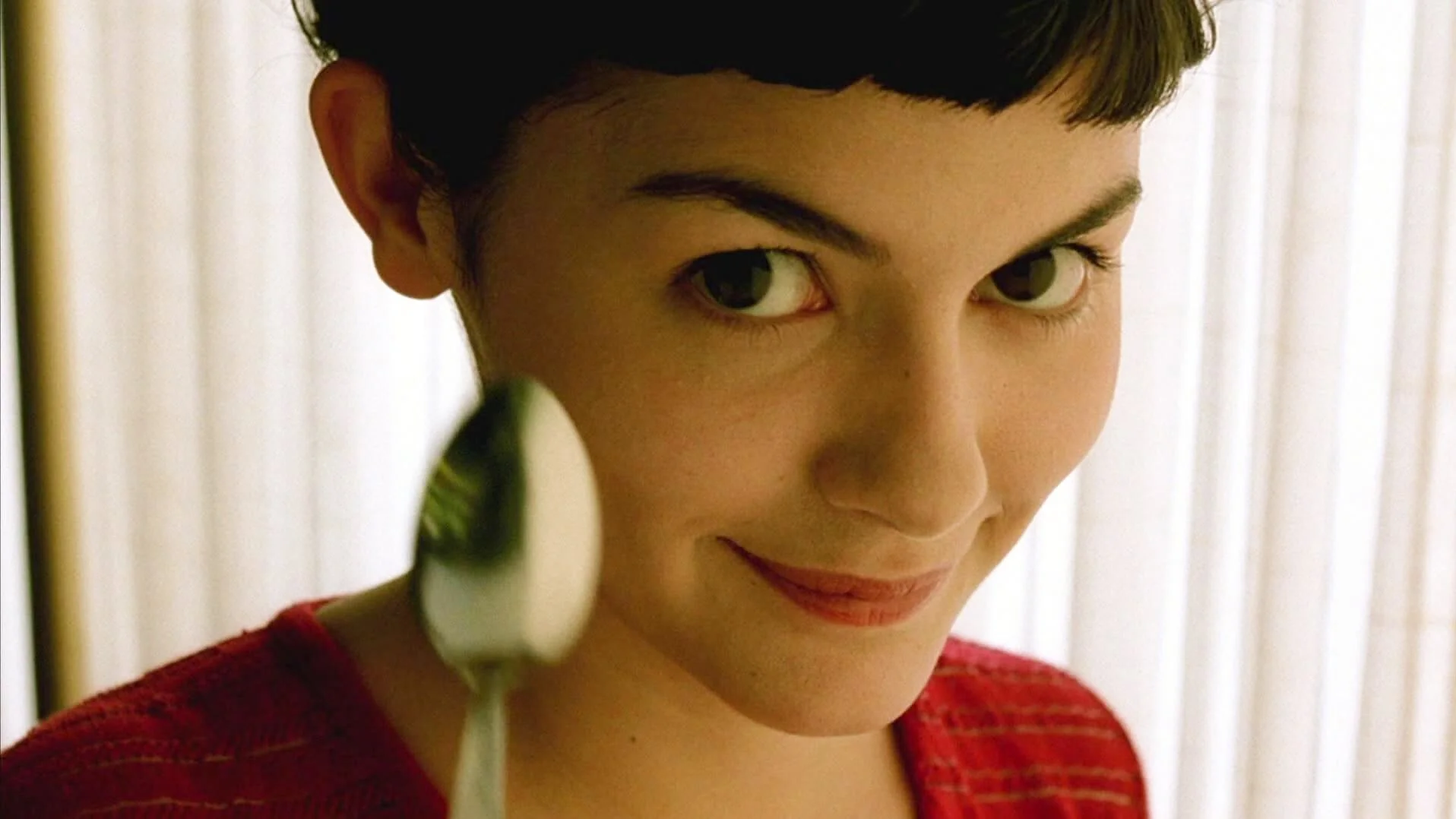
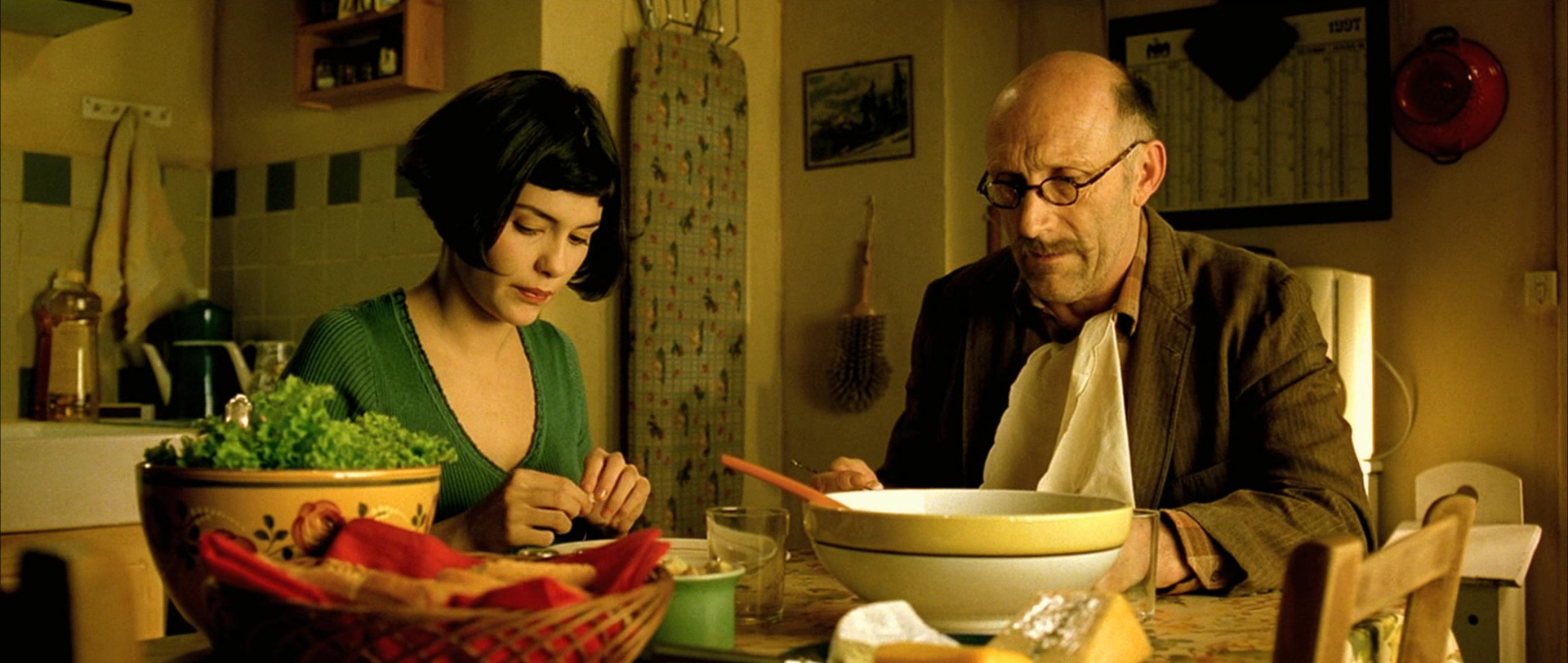
The film’s narrative structure is akin to a pastiche, interweaving various subplots and character arcs that converge around the titular protagonist, Amélie Poulain, portrayed with effervescent charm by Audrey Tautou. The film eschews conventional linear storytelling in favor of a fragmented, almost episodic approach, reminiscent of Barthes’ notion of the writerly text, where the audience is invited to actively construct meaning from the disparate narrative threads. Amélie herself is an emblem of quiet introspection and imaginative vibrancy, an introvert who finds solace in small acts of kindness and serendipitous adventures. Her interactions with the eclectic denizens of Montmartre serve as a microcosm of urban Parisian life, each character meticulously developed to embody unique idiosyncrasies and existential dilemmas.
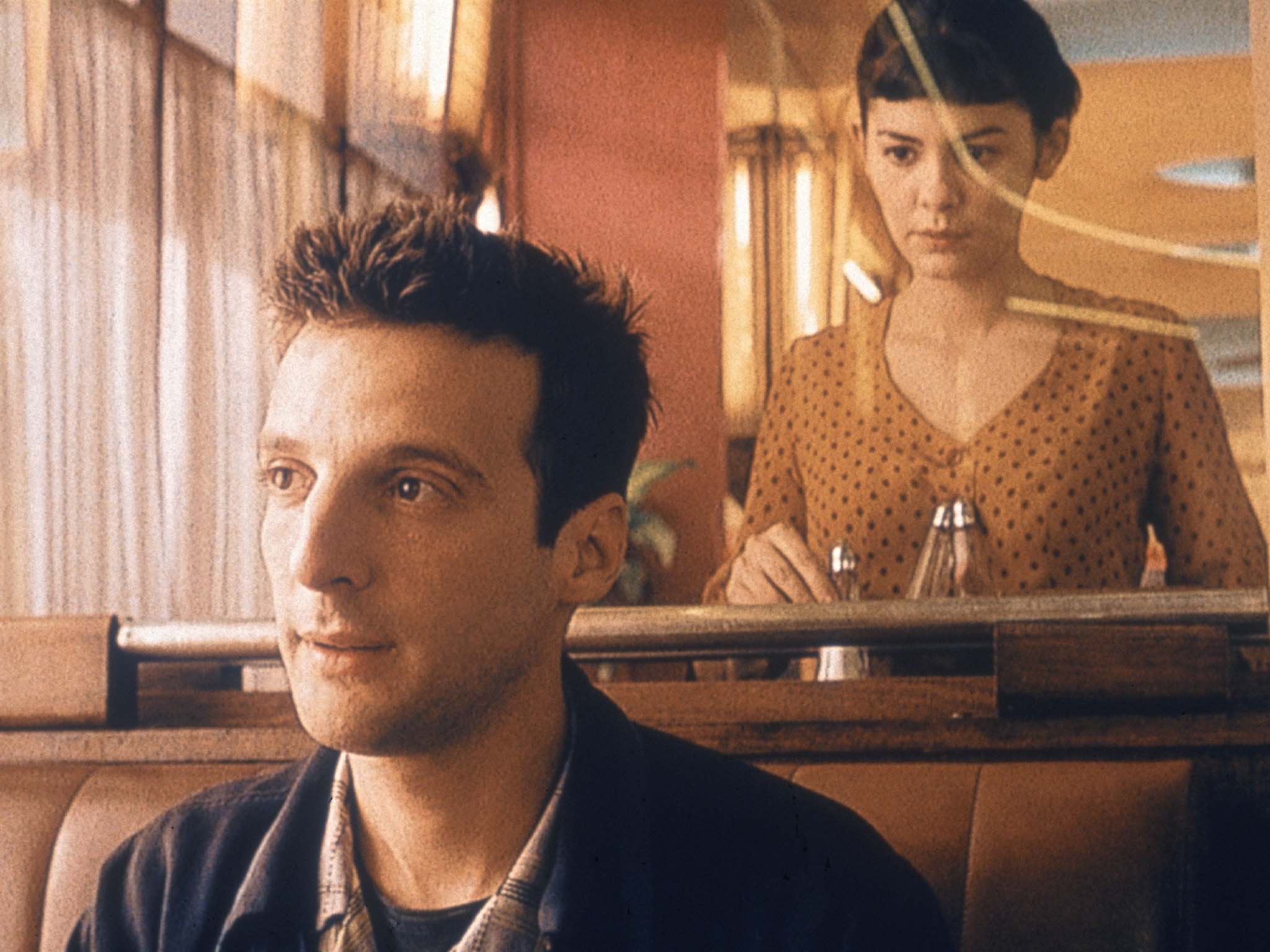
The film’s dialogue is a symphony of poetic realism and playful linguistics, evoking the stylings of Prévert and the visual poetry of Tati. The narrator’s omniscient, almost intrusive commentary imbues the film with a literary quality, creating a metanarrative that oscillates between the diegetic and the extra-diegetic realms. Jeunet employs a rich semiotic landscape, where visual motifs and colour symbolism are paramount. The pervasive use of red, green, and yellow hues not only establishes a distinctive aesthetic but also operates on a symbolic level, reflecting Amélie’s internal world and her burgeoning sense of purpose. The recurring imagery of reflective surfaces, such as mirrors and puddles, underscores themes of introspection and duality. At its core, Amélie is an exploration of the delicate interplay between solitude and connection. The film delves into the Heideggerian concept of being-in-the-world, portraying Amélie’s journey from existential isolation towards authentic engagement with those around her. Her transformative quest is punctuated by acts of altruism, which serve as catalysts for both her personal growth and the betterment of her community. The film’s denouement, wherein Amélie musters the courage to pursue a romantic connection with Nino Quincampoix (Mathieu Kassovitz), epitomizes the Aristotelian notion of eudaimonia—a state of flourishing achieved through virtuous living and meaningful relationships.
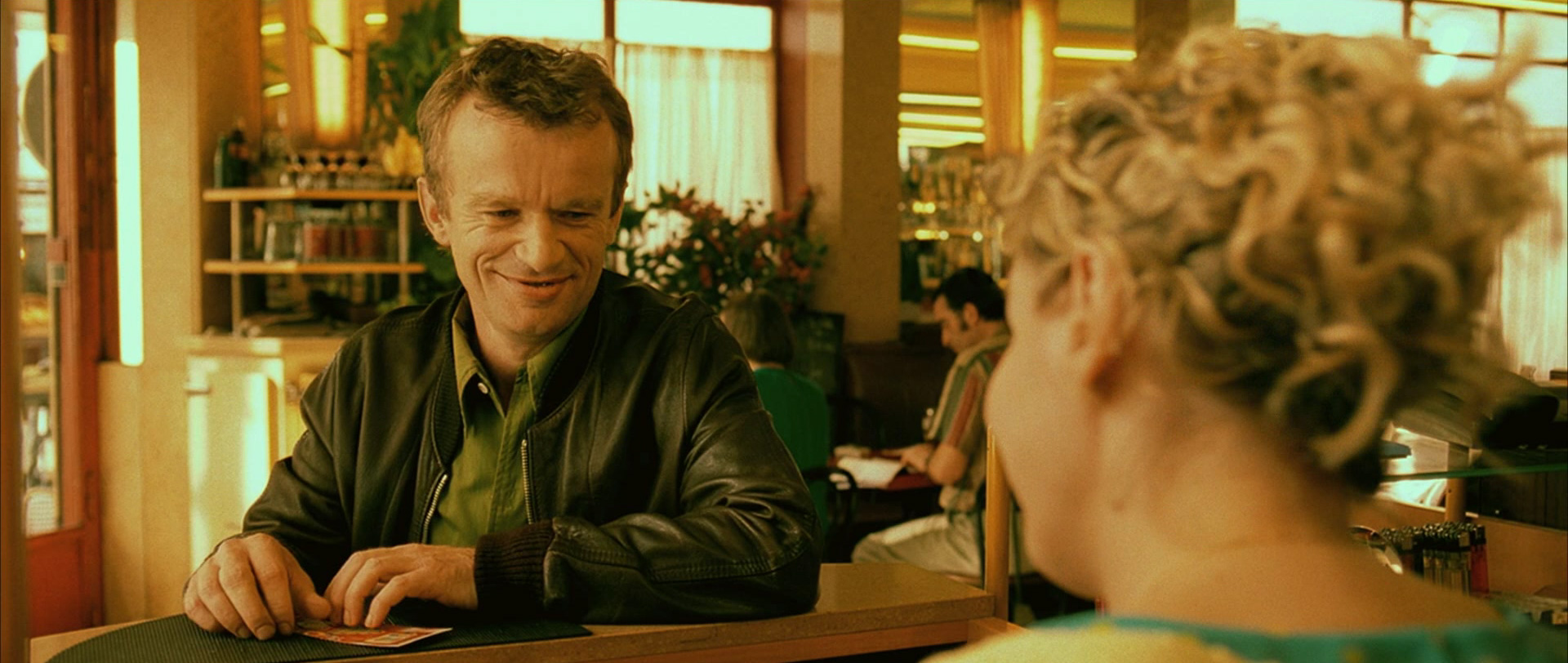
Jeunet’s directorial approach is characterized by a meticulous attention to detail and a penchant for visual storytelling. The use of rapid montages, exaggerated close-ups, and whimsical special effects creates a surreal, almost dreamlike atmosphere that blurs the boundaries between reality and fantasy. The film’s delightful souffle cinematography, lensed by Bruno Delbonnel, employs unconventional angles and fluid camera movements to enhance the sense of wonder and discovery. The diegetic soundscape, featuring Yann Tiersen’s evocative score, complements the film’s aesthetic and emotional tone. Tiersen’s compositions, with their melancholic accordion melodies and playful piano themes, serve as an auditory extension of Amélie’s inner life, encapsulating the film’s bittersweet charm.
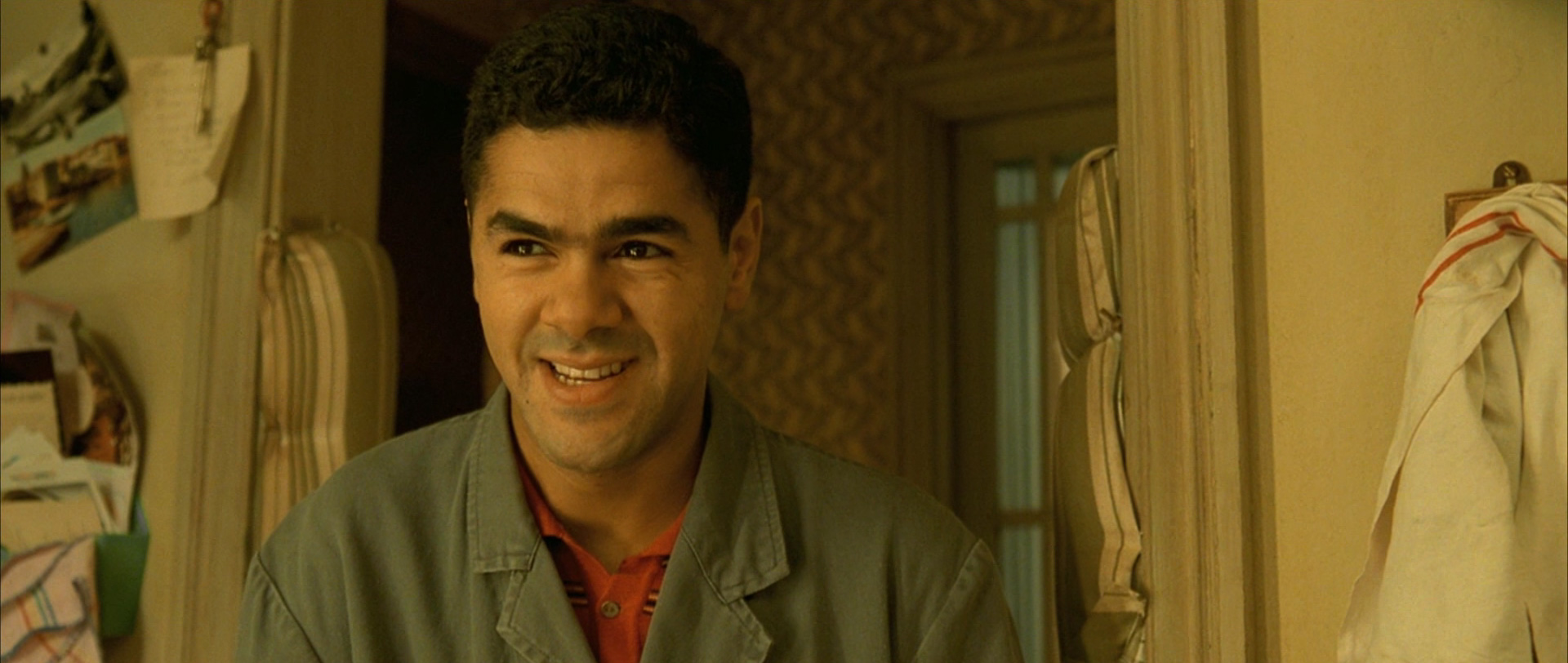
Amélie is a sublime film that operates on multiple levels, offering a rich tapestry of visual, linguistic, and thematic elements that coalesce into a harmonious whole. Jeunet’s masterful direction and Tautou’s enchanting performance breathe life into a narrative that is both deeply personal and universally resonant. Through its whimsical yet poignant portrayal of one woman’s quest for connection, Amélie invites audiences to reflect on their own lives, encouraging a celebration of the small joys and serendipities that define the human experience.

